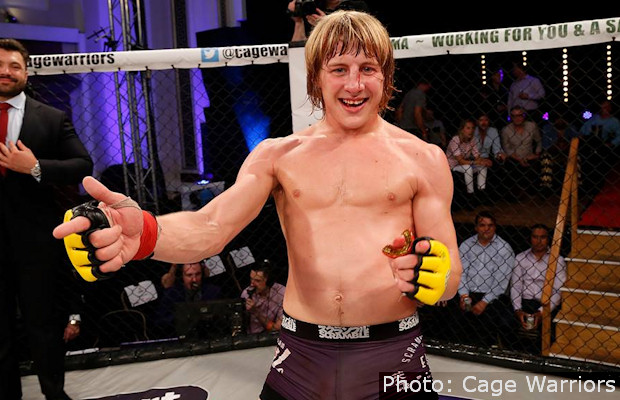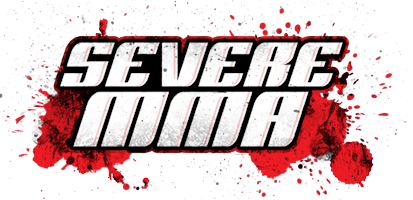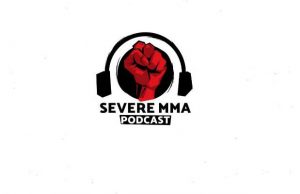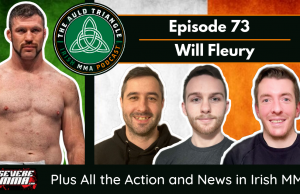

By guest writer Brad Wharton.
A young lad from Liverpool is fighting in the UFC this weekend…you may have heard of him? Who am I kidding, of course you’ve heard of him. If there’s one thing he’ll never be accused of, it’s being inconspicuous. Whether you’re invested in his success or tuning-in to see him fail, the point is that come Saturday night, you’ll definitely be watching Paddy ‘The Baddy’ Pimblett.
When I was a kid, there wasn’t a whole lot of MMA about. We didn’t have Twitter, but forums and message boards like Sherdog and The Underground were awash with pipe dreams of a future Utopia where events would take place every month…maybe even every week! Perhaps we should have been more careful about what we wished for… You can, it seems, have too much of a good thing and in the age of relentless content, it’s tougher than ever to stand out from the crowd.
Enter: The Baddy.
This weekend we’ll be treated to something a little bit special; a career-defining chapter in the almost decade-long story of one of the most unique individuals to ever emerge from the UKMMA scene. There’s been plenty of twists in the tale, but the UFC faithful are finally getting their first real taste of Paddy Pimblett.
What makes this 26-year-old Scouser unique? Firstly, let’s strip it back to the bare bones of fighting: Any man who walks out in a pair of bright orange Kazushi Sakuraba-style shorts better be willing and able to dazzle on the mat, and Pimblett has made a career out of leaving jaws agape with his frankly breathtaking submission acumen.
Eye-popping rear-naked chokes, flying triangle armbars…there’s never a dull moment when Paddy manages to snake his limbs around someone’s neck. Sure we all love a crazy knock-out, but when a fighter can pop a capacity crowd just as loud using the gentle art of Jiu-Jitsu, it’s time to sit up and take notice.
So the kid can scrap, that much we know for sure. But there’s more – much more – to fight sports than fighting and that’s where Paddy truly comes into his own. We’ve all seen the videos of his infamous Cage Warriors 96 walk-out; the unmistakable sharp synth stabs of Tiesto’s ‘Lethal Industry’ giving way to A-Trak’s epic remix of The Yeah-Yeah-Yeah’s ‘Heads Will Roll’, before Basement Jaxx’ legendary ‘Where’s Your Head At?’ vocal kicks in and takes the roof off the Echo Arena.
It’s a cliche, but you really had to be there. One of the hard and fast rules of broadcasting live sports is that you remain ‘on comms’ (ie, with your headset on) from fifteen minutes prior to going live until the director dismisses you once the show is off air. When Paddy walked out at The Echo, that rule went out of the window. The ear defenders came off and I soaked in an atmosphere quite unlike anything I’ve experienced in over a decade of calling fights all over the world. Cage Warriors dubbed it the house party; they weren’t wrong.
To hold a decent party you need a few guests, and another thing that makes The Baddy stand out from the crowd is the sheer size of the following he’s managed to amass outside of the UFC ecosystem. Paddy’s rise to fame (and make no mistake, he transcended from ‘UKMMA famous’ to actual fame some time ago) was purely organic, and that’s what makes it great.
Look, we’re all tired of making comparisons to Conor McGregor whenever somebody with a fanbase transitions from Cage Warriors to the UFC, but there are precious few that can lay claim to a similar trajectory and Paddy is absolutely one of them. His face adorned the huge digital billboard that greets you upon stepping out of Lime Street Station into the fighting city of Liverpool, and the true test of permeating the mainstream – how many taxi-drivers claim to have driven you – was passed with flying colours. You simply couldn’t catch a cab or go for a pint in the City on the weekend of a Pimblett fight without being asked about The Baddy. Every driver had had him in the back, every barfly had a tale to tell.
Liverpool is the UK’s closest analog to Catalonia; a nation within a nation, especially when it comes to sport. “Scouse not English” is a common mantra, one that Paddy has frequently used in interviews and on social media. It’s a defiant reaction to the vile demonisation of Liverpool’s football fans by a certain rag in the wake of the Hillsborough disaster, and the infamous suggestion to then Prime Minister Thatcher that the region be subject to a policy of ‘managed decline’ in the 1980s. While it’s far too nuanced a subject to delve into here, it can’t be denied that as a result, the City supports its own with a tribalistic fervour.
That tribalism – and Paddy’s willingness to give as good as he gets on social media – has earned him a fair few detractors along the way, both from other parts of the UK and beyond. I guess that’s a by-product of having your heart on your sleeve and a six-figure following; it’s not uncommon to see people arguing with him, and each other, in the comments section of Paddy’s socials. The thing is though, there’s an unwritten rule in this game that it pays best to be liked and hated in equal measure, and Pimblett treads that fine line with all the poise and balance of a veteran acrobat.
The truly mind-melting aspect of Paddy’s story is that at just 26 years of age and having yet to make his UFC debut, one would assume it’s a script still very much in its initial chapters. In reality that couldn’t be further from the truth; Pimblett debuted in the cage as a literal child, won a world title in one of Europe’s most respected promotions at 21, lost it at 22, fought for another at 23 and endured the kind of roller coaster ride of fight cancelations, injuries, surgeries and comebacks prior to entering his athletic prime that most competitors will only be able to recount in the twilight of their careers.
He has, in essence, grown up in the cage before our very eyes. We all make mistakes and learn life lessons growing up, but we do it in relative privacy. It’s easy to forget the vulnerability of young athletes – especially those engaging in literal fist-fights for our entertainment – doing so under bright lights in front of millions of eyeballs. Whether you’re one of his legion of fans or an Instagram hater, it’s important to remember that behind the house parties, the sell-outs and the flying triangles is a human being, a young man that has been open about overcoming his battles with mental health and one who in my personal experience is cool, kind and selfless in ‘real life’.
For every tweet calling someone a helmet or a mushroom, there’s another promoting a charitable cause or giving somebody a shout out or words of encouragement. For every bravado soaked interview, there’s a night at a regional show spent cornering teammates. For every hater, there’s a lifelong fan.
One of my lasting memories of calling Paddy’s fights is his comeback against Alexis Savvidis. Ahead of the bout there were a lot of talking heads doubting that The Baddy had what it took to operate at the highest level. After he submitted the grappling specialist with a trademark flying triangle, vaulted the cage and into the arms of the sea of fans crashing through the security barriers, I got caught up in the moment and bellowed into the mic “Do you doubt him now? DO. YOU. DOUBT. HIM. NOW?”
It’s probably my favorite line of commentary, but the footage highlights the unique connection Paddy has with the live audience. It didn’t feel right to see him fight behind closed doors at the Cage Warriors Trilogy, but while it’s a crying shame that Saturday’s UFC debut was moved from a packed O2 Arena to Las Vegas’ APEX facility, all it means is that we have a little longer to get excited about the true house party when the UFC inevitably returns to the UK next year.
Until then, here we are… just days away from the moment an army of fans have been waiting for and the moment the haters said would never come. The Baddy is in the UFC, so ask yourself…
Do you doubt him now?



